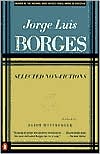Category Books
- Fiction Books & Literature
- Graphic Novels
- Horror
- Mystery & Crime
- Poetry
- Romance Books
- Science Fiction & Fantasy
- Thrillers
- Westerns
- Ages 0-2
- Ages 3-5
- Ages 6-8
- Ages 9-12
- Teens
- Children's Books
- African Americans
- Antiques & Collectibles
- Art, Architecture & Photography
- Bibles & Bible Studies
- Biography
- Business Books
- Christianity
- Computer Books & Technology Books
- Cookbooks, Food & Wine
- Crafts & Hobbies Books
- Education & Teaching
- Engineering
- Entertainment
- Foreign Languages
- Game Books
- Gay & Lesbian
- Health Books, Diet & Fitness Books
- History
- Home & Garden
- Humor Books
- Judaism & Judaica
- Law
- Medical Books
- New Age & Spirituality
- Nonfiction
- Parenting & Family
- Pets
- Philosophy
- Political Books & Current Events Books
- Psychology & Psychotherapy
- Reference
- Religion Books
- Science & Nature
- Self Improvement
- Sex & Relationships
- Social Sciences
- Sports & Adventure
- Study Guides & Test Prep
- Travel
- True Crime
- Weddings
- Women's Studies
Borges: Selected Non-Fictions »

Authors: Jorge Luis Borges, Eliot Weinberger (Editor), Eliot Weinberger (Translator), Suzanne Jill Levine (Translator), Esther Allen
ISBN-13: 9780140290110, ISBN-10: 0140290117
Format: Paperback
Publisher: Penguin Group (USA)
Date Published: November 2000
Edition: (Non-applicable)
Author Biography: Jorge Luis Borges
This legendary Argentine poet, essayist, and short-story writer's works have become classics of 20th-century world literature, leaving a legacy that serves as an enduring testament to the politics and passions of Jorge Luis Borges.
Book Synopsis
This unique volume presents a Borges almost entirely unknown to American readers: his extraordinary non—fiction prose. Borges' unlimited curiosity and almost superhuman erudition become, in his essays, reviews, lectures, and political and cultural notes, a vortex for seemingly the entire universe: Dante and Ellery Queen; Shakespeare and the Kabbalah; the history of angels and the history of the tango; the Buddha, Bette Davis, and the Dionne Quints.
"The sheer range of cultural territory covered in these essays compels awe and bemusement." —Robert Irwin, The Washington Post Book World
"Superb ... indispensable to both the longtime Borges reader and the newcomer."—Alexander Theroux, The Wall Street Journal
"One reads these many essays ... with amazement at their author's impetuous curiosity and penetrating intelligence." —Richard Bernstein, the New York Times
Winner of the National Book Critics Circle Award in criticism
Chosen International Book of the Year by George Steiner in the Times Literary Supplement
Joshua Klein
It has been said of Shakespeare's genius that were his plays not easy to write, they would have been impossible. The implication is that under Shakespeare's working conditions--dim candlelight, quill and ink on parchment--the Bard could not have been so astoundingly prolific had his enduring classics not emerged from his mind all but fully formed. That's also the root of persistent yet baseless rumors that Shakespeare's works were not all of his own devising; how could one man truly be so great? But you don't work hard to become a genius: Genius drives you to work hard. A perfect example is Argentine writer Jorge Luis Borges. Revered for his intellect and fascinating breadth of knowledge, Borges is best know for his fiction and poetry. Along with James Joyce, Joseph Conrad, and Vladimir Nabakov, he's universally regarded as one of the great 20th-century authors to have never been awarded a Nobel Prize in literature. Yet until his death in 1986, Borges wrote a vast expanse of essays, reviews, and other non-fiction pieces, much of it collected and made available in English for the first time in Selected Non-Fictions. Edited by Eliot Weinberger and diligently translated by Weinberger and two helping hands, the book is a revelation. Much of Borges' non-fiction echoes the metaphysical themes of his fiction, and his favorite subjects (The Arabian Nights, Don Quixote) recur again and again. But perhaps the most revealing aspect of Selected Non-Fictions is Borges' meeting with the mundane. It seems that over the course of his 87 years, he consumed and digested anything he could. Consequently, Selected Non-Fictions' pieces reflect his fascination with the profound (religion, war), the popular (King Kong, which he pans for its clunky ape portrayal), and some combination of the two (a positive review of Joyce's Ulysses, even though Borges, to the empowerment of college students around the world, admits he hasn't read the whole thing). Selected Non-Fictions also collects some hilarious reviews of popular detective fiction and the like that Borges wrote for El Hugar (an Argentine women's magazine), a few commissioned prologues, and, ultimately, transcripts of speeches and lectures made after he had gone blind. Reading through the book's surprisingly accessible and entertaining works raises a perplexing question: How can one man know so much about everything? Thankfully, with Selected Non-Fictions, Borges' enviable gifts have been made more apparent than ever before.
Table of Contents
Subjects
 Essays
Essays  General & Miscellaneous Essays
General & Miscellaneous EssaysFiction Books & Literature
 Literary Criticism
Literary Criticism  Latin American & Caribbean Literature
Latin American & Caribbean LiteratureFiction Books & Literature
 Literary Criticism
Literary Criticism  Literary Theory
Literary TheoryNonfiction
 Social Sciences
Social Sciences  Latinos & Latin Americans
Latinos & Latin AmericansScience & Nature
 Social Sciences
Social Sciences  Latinos & Latin Americans
Latinos & Latin AmericansSocial Sciences
 Latinos & Latin Americans
Latinos & Latin Americans  Latin American & Caribbean Literature
Latin American & Caribbean Literature
